The holidays: Our annual time of year to focus on socializing at parties, scrambling to buy presents, and hopefully spending some time out of the office.
If you’re lucky enough to land a few minutes to yourself this holiday season, Brookings has plenty of in-depth reading you can escape to. In addition to our best-selling books, below is a collection of our favorite long-form essays of the year. Many are part of the Brookings Essay series, which launched in 2013 as a way to allow distinguished authors the freedom to explore some of the most pressing policy issues facing the U.S. and the world in a unique and immersive way.
So sit back next to the fire (or in your inadequately reclining airplane seat) and sink your teeth into these substantive pieces on the issues that defined 2015—no 140 character analysis required.
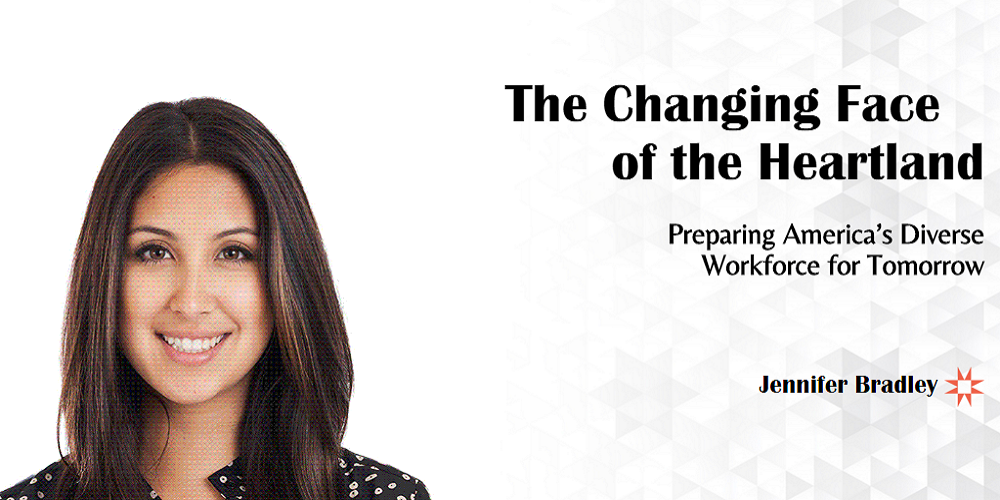
|
By the year 2044, people of color will account for a majority of the U.S. population, but now is the time for the public and private sectors to close the racial gaps in education and employment. This according to the Aspen Institute’s Jennifer Bradley in The Changing Face of the Heartland: Preparing America’s Diverse Workforce for Tomorrow, in which she examines the efforts of several organizations in the traditionally “lily-white” Twin Cities of Minnesota to close the persistent education and employment gaps facing its rapidly growing population of people of color. |
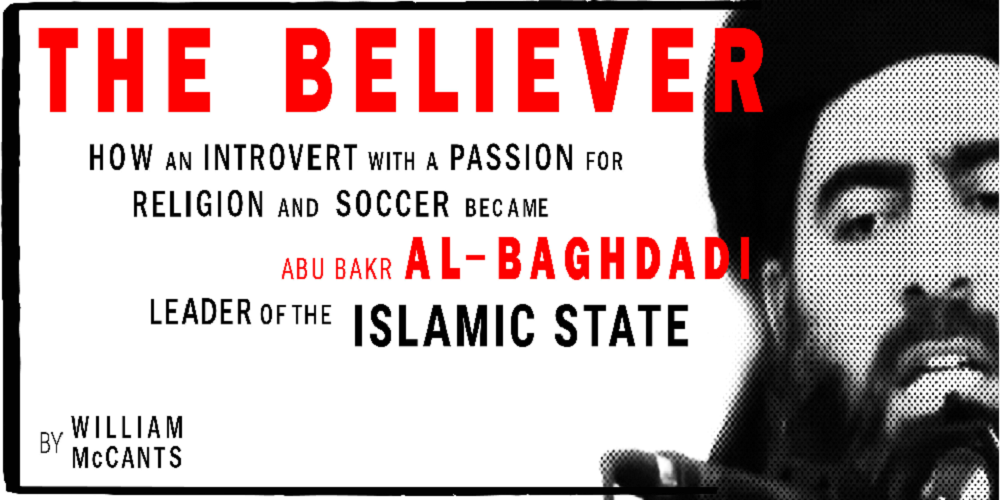 |
In The Believer, William McCants, director of the Project on U.S. Relations with the Islamic World, tells the story of Abu Bakr al-Baghdadi, the leader of the Islamic State (a.k.a. ISIS), a group so brutal and hardline that even al-Qaida deemed them too extreme. Baghdadi, an introverted religious scholar with a passion for soccer, now controls large swaths of land in Iraq and Syria. McCants shows how Baghdadi became radicalized in the Saddam Hussein era and found his path to power after connecting with other radicals in an American prison during the Iraq War, culminating in his declaration of a reborn Islamic empire bent on world conquest. |
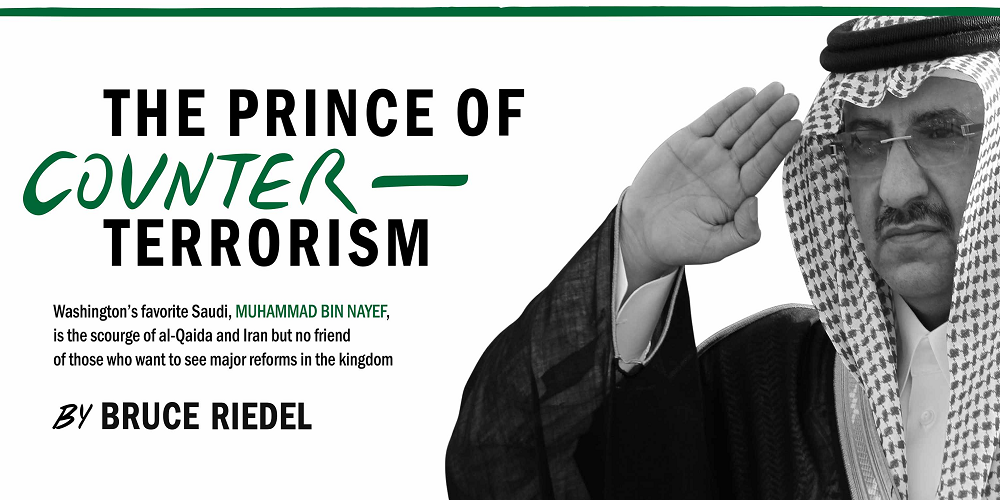 |
Foreign policy expert and CIA veteran Bruce Riedel tells the story of Crown Prince Muhammad bin Nayef, “Washington’s favorite Saudi,” in The Prince of Counterterrorism. While Nayef is applauded for his efforts to fight ISIS and al-Qaida, Riedel explains that policymakers in Washington should be under no illusions that he will take Western advice to reform the kingdom. Saudi Arabia’s strict opposition to everything the Arab Spring stood for continues to raise questions about the wisdom of America’s close ties to the kingdom. |
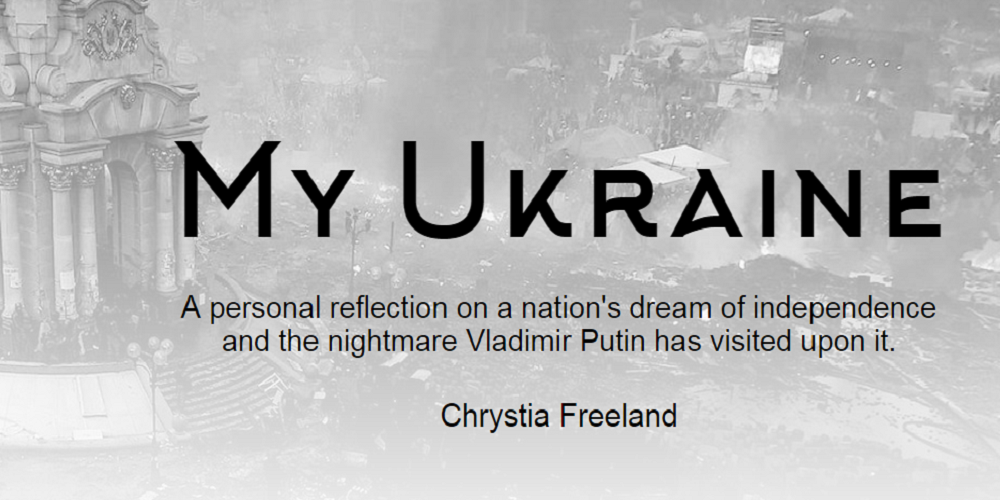 |
Since the breakup of the Soviet Union in 1991, former Soviet republic Ukraine has struggled against its “giant neighbor to the north”—Russia— to maintain its sovereignty. In early 2014 tensions turned to conflict as Russian President Vladimir Putin, determined to keep Ukraine from forging stronger ties with the West, seized Crimea and fomented conflict in eastern Ukraine. In My Ukraine, Chrystia Freeland, a former Ukraine-based reporter with strong family ties to the country and current member of Canada’s Parliament, offers a personal reflection on the conflict and the sentiment of the Ukrainian people. |
 |
By the standards he has set out for himself, says Foreign Policy program Senior Fellow and Research Director Michael O’Hanlon, President Barack Obama’s foreign policy has fallen considerably short of expectations and aspirations. In Obama the Carpenter, O’Hanlon explains why he thinks Obama’s presidency won’t go down as a watershed in American foreign policy, and why he has been judicious in crises—particularly with respect to Russia, China, and Iran. |
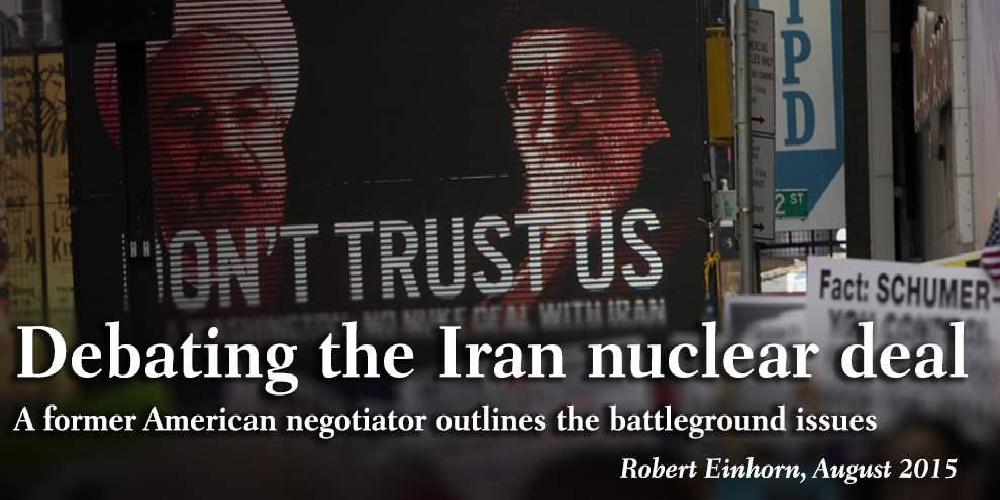 |
Finally, Robert Einhorn, a former American negotiator on the U.S.-Iran negotiating team, and now a Brookings senior fellow, offers his insightful and in-depth review of the Joint Comprehensive Plan of Action, the nuclear deal between Iran and the P5+1 countries. The deal continues to face opposition from many in Congress and is becoming a frequent issue in the race for the Republican presidential nomination. Einhorn focuses with clarity in Debating the Iran nuclear deal on six battleground issues, including what happens if Congress rejects the deal. |
|
For more great longreads, visit the full list of Brookings Essays here. |
|
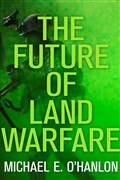
Commentary
The best Brookings longreads of 2015
December 21, 2015